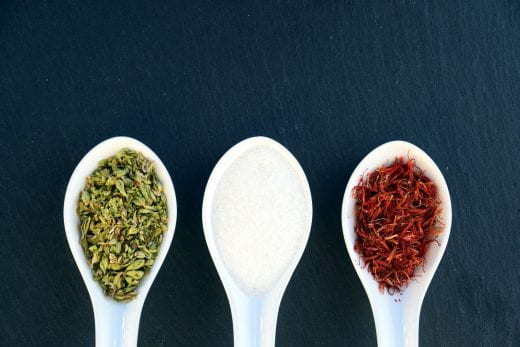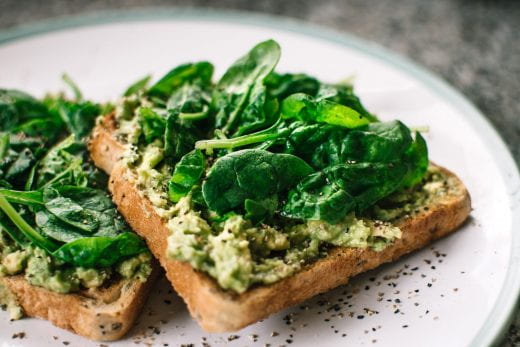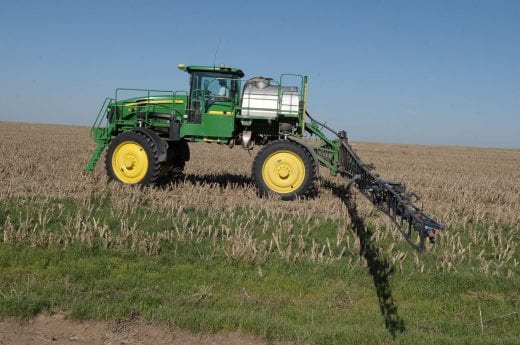In today’s Better Kansas, we feature nutrition information in the Season of Eating, protecting from elder abuse, unintended visitors on firewood, the new Ag Report, Rural Health Day photo contest and pesticide applicator training. This is a small glimpse of what K-State Research and Extension across the state has to offer. Share on social media and subscribe! – Mary Lou Peter mlpeter@ksu.edu
Better Living, Better Communities
HALLOWEEN MARKS WHAT SOME CONSIDER THE HOLIDAY SEASON, but I think of it as The Season of Eating. We’ll start with the trick-or-treat candy and move our way into pumpkin bread, cookies, turkey, dressing, mashed potatoes, pecan pie …. you know. Comfort food never sounded so good as during a relentless pandemic. To help keep us on a healthy track, take a look at Kansas SNAP-Ed and Nutrition Topics. I heartily agree with one tip that says if you wish you were a better cook, make something delicious and you’ll be inspired to cook again, soon. The search is always on for that recipe that’s delicious but also nutritious and reasonably low in calories and fat. And just fyi, Kansas SNAP-Ed has a Facebook page that has a constant flow of resources and tips for healthy living.
PROTECTING OURSELVES, PROTECTING OUR LOVED ONES is the sentiment behind a fact sheet about elder abuse. When we think of this we might think of physical abuse, but emotional and financial abuse – including telephone and mail scams – also occur and may not be as obvious. The top form of elder abuse in Kansas is financial, which is often perpetrated through scams, including Medicare and IRS scams, but also sweepstakes, investment and home repair scams. Speaking of sweepstakes scams, one of my close family members who had a long, respected, successful career, became increasingly vulnerable to this kind of scam as he grew older. This can happen to anyone, in any family. Read more.
THERE’S NOTHING LIKE A ROARING FIRE WHEN IT’S COLD OUTSIDE, but something to consider before you bring firewood indoors is who might be hitching a ride on it. Termites, carpenter ants and woodborers are just some of the pests that can make their way into our homes on firewood, so the experts say to store it outside, bringing in only what we’ll use within a few hours. Take a look at Pests associated with firewood to learn more. And while we’re on the topic, read about how not all firewood is created equal. Some types … think Osage Orange and Post Oak … burn hotter than others!
Better Farming, Ranching and Gardening
THIS WEEK I’M HAPPY TO SHARE A GLIMPSE OF PROGRAMS AND RESEARCH IN K-STATE’S COLLEGE OF AGRICULTURE via the latest Ag Report. This issue (be sure to scroll down) highlights some of the faculty and infrastructure critical for supporting student learning plus research that benefits farmers, ranchers and ultimately consumers. Featured facilities include the new Agronomy Education Center, the John C. Pair Horticulture Center, Purebred Beef Unit, Beef Stocker Unit and the Sheep and Meat Goat Center. Plus, read about how internationally renowned researcher and University Distinguished Professor Barbara Valent has been named to the National Academy of Sciences. Her primary work is in wheat blast disease, which can decimate wheat fields in countries where it’s present. Thankfully, to date it’s not made its way to the United States. Valent and her team are working to keep it that way.
 SUBMIT YOUR PHOTOS: NATIONAL RURAL HEALTH DAY IS NOV. 19 this year. To mark the occasion and to honor the community-minded spirit prevalent in our rural communities, the Kansas Office of Primary Care and Rural Health, part of the Kansas Department of Health and Environment, is hosting the “Power of Rural” Photo Contest. Submissions will be accepted until NaNov. 13, so take a look at the website, scroll down to the photo contest section for details, then get out there and start snapping away. You can submit your three best photos, just be sure to follow the rules. The contest is open to all ages.
SUBMIT YOUR PHOTOS: NATIONAL RURAL HEALTH DAY IS NOV. 19 this year. To mark the occasion and to honor the community-minded spirit prevalent in our rural communities, the Kansas Office of Primary Care and Rural Health, part of the Kansas Department of Health and Environment, is hosting the “Power of Rural” Photo Contest. Submissions will be accepted until NaNov. 13, so take a look at the website, scroll down to the photo contest section for details, then get out there and start snapping away. You can submit your three best photos, just be sure to follow the rules. The contest is open to all ages.
K-STATE IS SUPPORTING INDUSTRY AND COMMUNITIES IN GENERAL by offering Pesticide Applicator Recertification Training on Zoom, Tuesday-Wednesday, Nov. 17-18 from 8 a.m. to 12 p.m. each day. All lawn, landscape and pest control companies who commercially apply pesticides are required by the Kansas Department of Agriculture to be certified. By educating, training and testing people who apply pesticides, consumers can be assured that the person applying pesticides to their lawn, home and workplace is knowledgeable and can safely do so. That would be unlike me, who freaked out and sprayed half a can of wasp killer on the nest over my front door – a big waste of pesticide and not environmentally friendly! Read about the training and register online.
_
For more resources and activities, contact the K-State Research and Extension office in your area. Check out our other blogs and subscribe to our weekly emails here: https://www.ksre.k-state.edu/news/blogs/


















